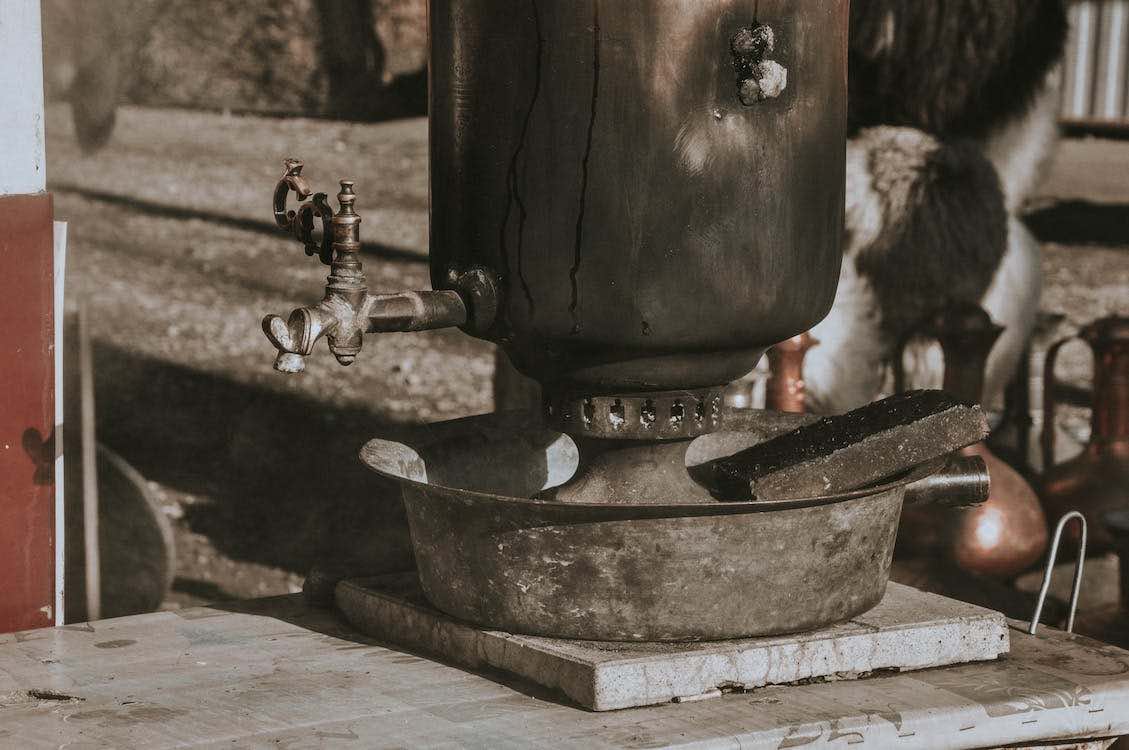Last updated on December 13th, 2023 at 12:11 pm
One way people can make their homes slightly more efficient is by using hydrogen boilers, which are seen as a potential way to reduce carbon emissions in the future. Hydrogen boilers are becoming more popular with homeowners, but many people do not know how they work.
80% of UK homes currently use combi boilers, but many are planning on making the switch to hydrogen boilers. In this guide, we’ll explore what hydrogen boilers are, their potential, and how they compare to other heating options, such as electric boilers.
What are Hydrogen Boilers?
Hydrogen boilers, often referred to as ‘hydrogen-ready’ boilers, are designed to run on 100% hydrogen fuel. However, as of now, there are no hydrogen-ready boilers available for consumers to purchase. Instead, you can find ‘hydrogen-blend ready’ boilers, which can operate with a mixture of 20% hydrogen fuel and 80% natural gas. Using 100% hydrogen for heating would require extensive changes, including the replacement of gas pipes in your home.
Is a Hydrogen Boiler Future-Proofed?
The viability of hydrogen for home heating is still uncertain. While trials have been proposed to test hydrogen at a community level, obtaining local consent for such experiments has been challenging. Questions remain about the cost of hydrogen fuel, necessary infrastructural changes, and safety measures. Additionally, hydrogen boilers may require adjustments to gas pipes and ventilation in homes, adding to the complexity and cost.
Due to these uncertainties, it’s not advisable to purchase a gas boiler solely on the assumption that it can be converted into a hydrogen boiler or to disregard other low-carbon heating technologies in anticipation of a hydrogen transition.
What Will Hydrogen Boilers Cost to Run?
The cost of hydrogen fuel remains unknown, but estimates suggest that it could be up to three times more expensive than natural gas for heating. In contrast, heat pumps, which use electricity, can be highly efficient, potentially offering lower running costs compared to hydrogen boilers.
While hydrogen may not be a direct replacement for natural gas in terms of costs, it may still be a viable option for some households once the technology matures and becomes more widely available.
How Much Will Hydrogen Boilers Cost to Buy?
Several boiler manufacturers have committed to pricing hydrogen-ready boilers no higher than traditional gas boilers. However, the final price may depend on demand and government decisions regarding the role of hydrogen in heating. Initial costs for hydrogen-ready boilers and installation are expected to be closer to those of gas boilers, making them a more affordable option compared to heat pumps.
How Do Hydrogen Boilers Work?
Hydrogen boilers function similarly to conventional gas boilers, with the primary difference being the use of hydrogen fuel instead of natural gas. When hydrogen burns in the presence of oxygen, it produces only water vapour. However, in real-world applications, burning hydrogen can still produce pollutants like nitrogen oxides (NOx), which contribute to climate change and respiratory issues.
To ensure the environmental benefits of hydrogen boilers, regulations and procedures need to be established to minimize NOx emissions during hydrogen combustion.
Pros and Cons of Hydrogen Boilers
Pros:
- Familiar Technology: Hydrogen boilers operate like traditional boilers, making them easy for homeowners to understand and use.
- Reasonable Upfront Costs: They are likely to be more affordable to install than alternatives like heat pumps.
- Suitable for Poorly-Insulated Homes: Hydrogen boilers can quickly heat draughty homes, although moving towards more efficient heating methods is recommended.
Cons:
- Not Carbon-Free: The production of hydrogen, especially through processes like grey hydrogen, is not carbon-free.
- Pollutants: Burning hydrogen can produce nitrogen oxides, which may require stringent controls.
- Higher Running Costs: Initial estimates suggest that hydrogen will be more expensive per kWh than natural gas.
- Infrastructure Uncertainty: The government’s stance on hydrogen for heating is still uncertain, impacting factors like the cost of hydrogen boilers and fuel.
When Will Hydrogen Boilers Be Available?
While there is no specific release date, hydrogen-ready boilers are expected to enter the market in the coming years. Boiler manufacturers have already developed prototypes, and some are advocating for regulations that require all new gas boilers from 2025 onwards to be hydrogen-ready. The government plans to make a decision on the role of hydrogen in home heating by 2026, although full viability might not be proven by that time.
What is Blended Hydrogen?
Blended hydrogen involves mixing a small quantity of hydrogen, typically 20%, with natural gas in the existing gas supply. This approach aims to create demand for hydrogen production without requiring homeowners to replace their current gas boilers or appliances. While blended hydrogen reduces carbon emissions, it is considered a short-term solution on the path to achieving net-zero emissions.
How is Hydrogen Produced?
Hydrogen can be produced through various methods, each with its own environmental implications:
- Grey Hydrogen: Produced by reforming methane or natural gas, it has high carbon emissions.
- Blue Hydrogen: Similar to grey hydrogen, but most of the carbon dioxide emissions are captured and stored.
- Green Hydrogen: Made by splitting water using electricity, it is zero-carbon when powered entirely by renewable electricity.
- Turquoise Hydrogen: Uses thermal plasma electrolysis to produce hydrogen from methane and natural gases, with solid carbon as a byproduct.
85% of UK homes currently on the
Homes Without a Gas Supply
For homes off the gas grid, the UK government has proposed regulations to phase out fossil-fuel heating from 2026. Most homeowners in such areas are expected to install heat pumps as an energy-efficient heating solution. Electric boilers are also an option for homes without access to gas.
In conclusion, while hydrogen boilers hold promise as a potential low-carbon heating solution, their viability and widespread adoption remain uncertain. Homeowners should consider various heating options, including electric boilers and heat pumps, depending on their individual circumstances and long-term sustainability goals. As the government’s stance on hydrogen becomes clearer, consumers can make more informed decisions about their heating systems.
If you are worried about your home, you can rely on an annual boiler service to stay on top of your boiler’s issues. Warmable will send a trusted local engineer to provide you with a free quote.


